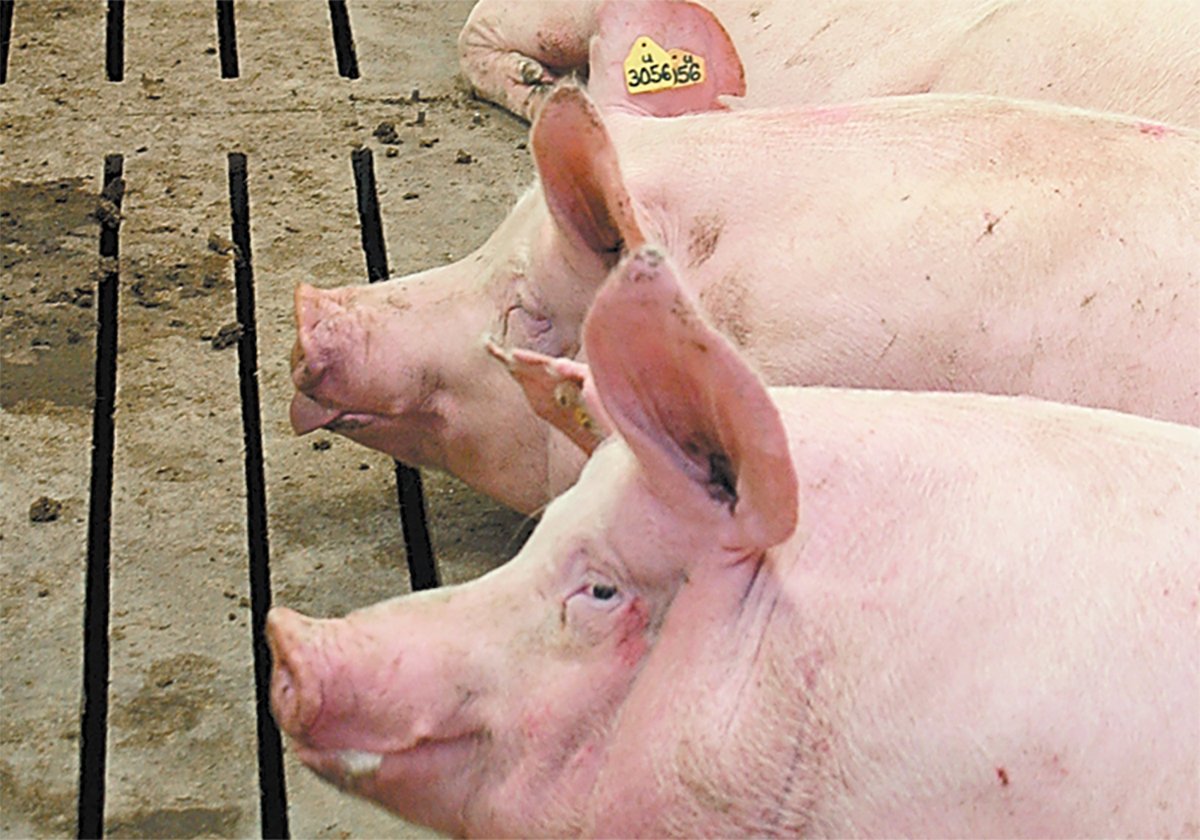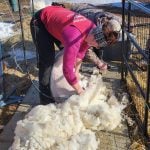The liquid ivermectin can be poured onto feed
The cost to deworm horses in Canada is expected to drop with the release of an Alberta-made generic ivermectin.
Alberta Veterinary Labs, the Calgary-based developer of the new product, predicts costs of about $5 per dose for an average 500 kilogram horse, compared to about $20 per dose that many horse owners now pay.
Price will depend on what retailers set it at.
The product has the straightforward name of Ivermectin Liquid for Horses. It is a water-based product that can be poured onto feed and eaten. Other products require placement of a deworming paste on the horse’s tongue, which can be a struggle if the horse objects.
Read Also

Western Producer Livestock Report – August 14, 2025
Western Producer Livestock Report for August 14, 2025. See U.S. & Canadian hog prices, Canadian bison & lamb market data and sales insights.
“People know the active agent very well and they’ve used ivermectin products,” said Dr. Merle Olson of AVL.
“There’s two things different about this. It’s a liquid, which makes it much easier to deliver to the horse, and they can also deliver it in the feed as well. They can squirt it into their sweet feed or oats, and they’ll eat it up. You don’t have to wrestle with the horse.”
The other unique factor is a 14-day withdrawal time. Olson said it is the first horse-related product in North America to have a withdrawal time issued by Health Canada.
Olson said that’s significant be-cause about two-thirds of all horses eventually go to slaughter and much of the meat enters the human food chain.
Robyn Moore, manager of the Horse Industry Association of Alberta, said her members welcome the new Canadian product as a cheaper alternative to previously available dewormers, all of them imported.
“Everyone can benefit from having to spend less money on these essential items,” said Moore.
Horses are typically dewormed two or three times a year, and savings are magnified if the herds are large.
“Most horse stables in Alberta have their own deworming protocol, which will be two to four times a year.
“I deworm my horses three times a year, and I think the majority of people are kind of in that mark.”
Moore said some horses object to the deworming paste placed on their tongues.
“It does not taste good, so many horses resist the process. And they learn. They know when its deworming time because they drop their head and … they become resistant and head shy. Some horses are quite resistant of it, so this is a nice product,” she said.
“You’re not creating that negative experience for them, for both the horse and the owner. It’s easy.”
Olson said a 10 millilitre dose will do the job on an average-sized horse. The product is available in 15 ml doses as well as 60 ml and 120 ml bottles.
AVL also makes generic Ivermectin Pour-on for Cattle, which Olson estimates has saved Canadian cattle producers $9 million because of its cheaper cost and the way it has forced other name-brand manufacturers to lower their prices.
Horses have thinner and more sensitive skin than cattle, so a pour-on product is not suitable.
Olson said his company is testing the equine product on other species and hopes to eventually include sheep, goats and chickens on the label.
An orally administered product would be attractive to producers with large herds or flocks, he said.
“It has a huge advantage so you don’t have to handle animals to provide the medication.”
The new product is registered for all worms and bots and also appears to be effective against ticks and lice, although the latter two are not included on the label. Olson said further tests are required before that claim can be added.
The Alberta Livestock and Meat Agency provided partial funding of $355,000 to develop the product.
















